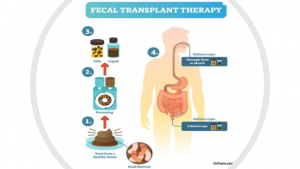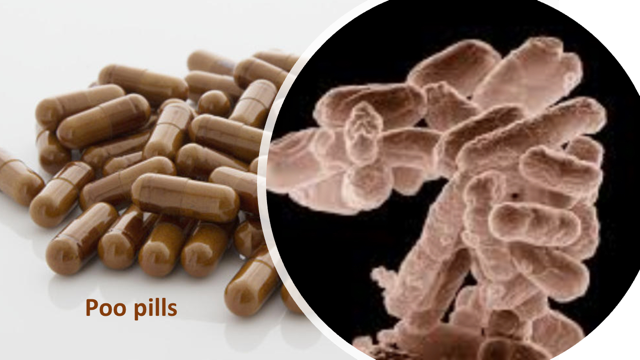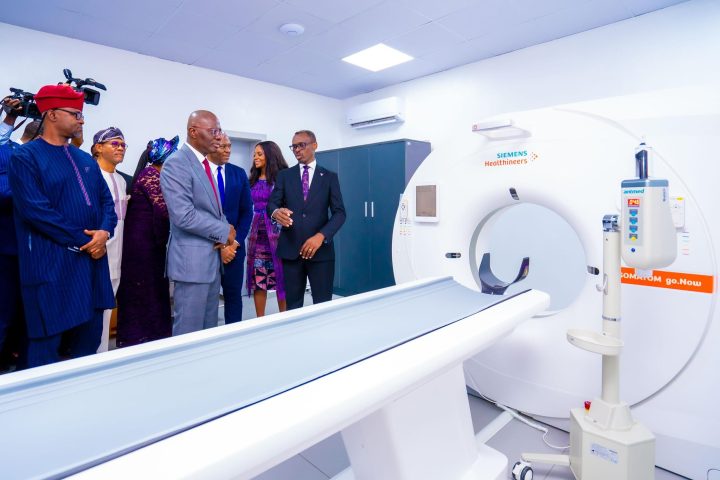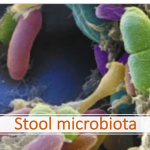By Dr Gabriel Uguru
In August last year we discussed an emerging therapy involving the use of poo not only to treat gut infections but to reverse the ageing process. Such therapy is called Faecal Microbiota Transplantation (FMT).
Please see the article entitled: “Poo is the Elixir of Youth” : https://www.primebusiness.africa/poo-is-the-elixir-of-youth/
Join our WhatsApp ChannelJust to refresh our memories and to better understand the current article, here are some relevant information:
A mix of microorganisms live in our bodies including bacteria, fungi, Protozoa and viruses.
Each person’s digestive system (or the gastrointestinal tract) is a hive of microbial activities and contains more than 100 trillion diverse microorganisms.
Some of the microorganisms are harmful and others are beneficial by helping to protect us against the harmful ones; some help in digesting our foods and some even produce beneficial chemicals like vitamins and essential amino acids we require for growth and development.
A collection of all the genetic makeup (i.e. genomes) of the microorganisms in the environment (e.g your body) is called the microbiome, while a collection of those microorganisms seen in specific areas of your body (e.g. stomach) is called the microbiota.
The largest collection of microorganisms in the body is in the large intestine or colon, in fact the number of microorganisms in the colon runs into trillions, and are recognised as the gut microbiota.
The gut microbiota is very individualised so that the composition of each person’s gut microbiota reflects on the person’s health.
The composition of each person’s microbiota depends on many factors such as what type of birth delivery you had when you were born (vaginal or Caesarian delivery), whether the person was breastfed or formula milk-fed, antibiotic use, etc.
Factors such as lifestyle, dietary and cultural habits contribute to differences in microbiota composition between individuals.
The FMT (or stool transplant) technique aimed at rejuvenating old and unhealthy microbiota of patients simply involves encapsulation of healthy donors’ poo, which patients then swallow, or feeding crude poo of screened donors through tubes inserted through the nose, and down to the stomach (i.e. nasojejunal). Stool transplantation practice is common and the poo could be delivered by colonoscopy, enema or encapsulation.
Since last year when we first discussed the FMT therapy, it has emerged that many health companies have been developing aesthetic microbiota (poo) therapies aimed at packaging microorganisms isolated from the gut (colon or large intestine) of healthy donors in pills format and using it to treat bowel infections especially, the type of recurrent diarrhoea caused by the bacterium, Clostridium difficile, of which hundreds of thousands of people worldwide suffer from the condition.
The microbiome therapeutic process involves isolating sporulating bacteria from healthy donor’s poo, purifying them before packaging them into pills. This process is less invasive, safer and more aesthetic than using crude and untreated poo. Potentially harmful bacteria could inadvertently be transmitted from donor to recipient if the poo sample is not screened properly, especially given the fact that microorganisms, including the virus, SARS-CoV-2, are normally shed in poos.

Purification of the poo is simply by either using ethanol to wash the poo sample or raising the temperature. Either of these methods will kill most of the microorganisms, especially vegetative bacteria, contained in the faecal sample leaving spores of bacteria behind. Vegetative bacteria are bacteria in active reproductive process while spores are thick-walled dormant structures formed by certain bacteria during adverse conditions. They are resistant to heat and other adverse environmental conditions that otherwise would kill other non-sporulating or vegetative bacteria.
READ ALSO: Why COVID-19 Vaccination Is Important For Pregnant Women
Sporulation is common in members of the bacterial phylum called Firmicutes, e.g. Bacillus, Clostridium, Lactobacillus, etc. The spores are packaged into pills and when swallowed, germinate in the colon and outcompete C. defficile for nutrients. Additionally some of the “imported” bacteria like Lactobacillus species, change the environment in the bowel and make it more acidic for C. defficile to survive.
READ ALSO: New Research Finds Cure For Spinal Cord Injury
A company called Seres Therapeutics have conducted a Phase III trial for their new pill, called SER-109. In the trial reported this January in The New England Journal of Medicine, 182 participants infected with the recurrent diarrhoea-causing bacterium, Clostridium difficile, were randomly given either the pill SER-109 or a dummy (placebo) pill following a course of antibiotic treatment. The study follow-up lasted for 8 weeks and 149 participants completed the study.
40 per cent of those given dummy pills had recurrent C. difficile infection against only 12% of those given the pill, SER-109. The data presented by Seres Therapeutics shows significantly reduced recurrence rates of C. defficile diarrhoea in those treated with the pill, SER-109, compared with those given placebo. Additionally, the safety data for SER-109 was comparable to those of placebo.
The US FDA has designated the new pill, SER-109, a “Breakthrough Therapy and Orphan Drug for the treatment of recurrent C. defficile (or rCDI). Currently the company is aiming to file an application for FDA full approval of the drug later in the year.
In a statement by the company, “SER-109 is designed to prevent further recurrences of CDI [Clostridium difficile infection] by modulating the disrupted microbiome to a state that resists C. difficile colonization [colonisation] and growth.”
The current trial by the company was midwifed by their earlier Phase II trial in 2016, which was a failure because according to the company, they used too low a dose of the pill. In their current Phase III trial, the prescribed dose was increased enough to achieve the desired results coupled with a more precise screening test.
When there is imbalance of bacterial population in the gut, it leads to a variety of events such as constipation, indigestion, bloating, diarrhoea, etc. Such microbiota imbalance could be due to use of antibiotics, which kills (or reduces the populations of) the beneficial bacteria leaving the harmful ones. This means that the gut microbiota is unable to perform its function efficiently, consequently the health of the host is affected. This disturbance in the equilibrium of the gut microbiota is called dysbiosis. A host of things apart from the use of antibiotics can cause dysbiosis including, dietary changes, lack of exercises, infections, sleep patterns, etc.
Some health companies and hospitals are now exploiting the FMT to offer services such as treating ulcerative colitis, irritable bowel syndrome (IBS), Crohn’s disease, Clostridium defficile infections (CDI), food allergies and obesity.
But the story does not end there, because there is evidence to suggest that gut microbiota may play a role in restoring cognitive decline in the elderly. And “considering the link between the gut and brain, modulating the gut microbiome by antibiotics, probiotics, prebiotics, and/or fecal [faecal] microbiota transplant (FMT) could be a viable therapeutic option.” -Kang & coworkers (Nature 2019).
Some health companies are now offering FMT as a tool to treating autism. Caution! Before you waste thousands of pounds or dollars looking for a miracle cure. FMT may alleviate some of the symptoms of autism but there has not been any definite CONFIRMED cases that FMT treats autism!
A host of other companies are also developing new techniques for delivery of healthy microbiota to patients, including filtering the poo and delivering it as an enema, and packaging lyophilised (free-dried) poo in pill format. Perhaps the most attractive technique with respect to aesthetics is isolating the beneficial bacterial species and growing them up in fermenter tanks rather than using a whole poo.
But whatever the technique of delivery, FMT is simply poo. And if you must undergo the FMT treatment, you just have to pinch your nose, grin and bear it. Don’t hold your nose in the air and say that poo is disgusting and smells. Of course it does. But no pain, no gain. Capisce?



















I’m going to get a poo tank, direct the harvesters to me please so we can discuss price.
Thank you for your wonderful article Gabriel! I never knew that treatment and I defenitely learnt something new today! Please keep writing more curious and informative articles and look forward to learning more things.
Thank you Gabriel for this wonderful article! I never knew that treatment and I learnt something interesting today. Keep writing more interesting articles!